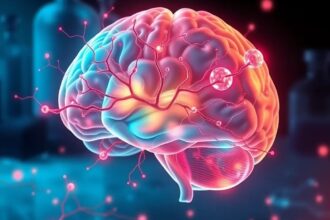A 12-week clinical trial evaluates the safety and feasibility of time-restricted eating in early-stage Huntington’s disease, focusing on metabolic outcomes and disease biomarkers.
A new clinical trial explores whether time-restricted eating can improve metabolic and cognitive outcomes in early-stage Huntington’s disease patients.
Introduction to Time-Restricted Eating and Huntington’s Disease
Time-restricted eating (TRE), a form of intermittent fasting where food intake is limited to a specific window each day, has gained attention for its potential metabolic and neuroprotective benefits. Huntington’s disease (HD), a devastating neurodegenerative disorder caused by a CAG repeat expansion in the HTT gene, currently has no disease-modifying treatments. This clinical trial protocol examines whether TRE could be a feasible intervention to slow disease progression in early-stage HD patients.
Dr. Mark Mattson, a neuroscientist at Johns Hopkins University and pioneer in fasting research, states: Time-restricted eating induces metabolic switching from glucose to ketones, which may enhance neuronal stress resistance and autophagy – processes particularly relevant in neurodegenerative diseases.
This builds on his previous work showing neuroprotective effects of intermittent fasting in animal models of Alzheimer’s and Parkinson’s diseases.
Study Design and Methodology
The 12-week randomized controlled trial will enroll 50 early-stage HD patients (UHDRS Total Functional Capacity ≥ 7) at three academic medical centers. Participants will be assigned to either:
- TRE group: 8-hour eating window (e.g., 10am-6pm) with 16-hour fasting daily
- Control group: Maintain usual eating patterns (>12 hour window)
Primary outcomes include adherence rates (measured by daily smartphone logging) and safety/tolerability. Secondary outcomes encompass metabolic markers (fasting glucose, insulin, lipids), body composition (DEXA scans), motor/cognitive function (UHDRS), and disease biomarkers (mHTT levels in CSF, neurofilament light chain).
Rationale and Potential Mechanisms
The study builds on compelling preclinical evidence. A 2021 study in HD mouse models (published in Cell Metabolism) showed that time-restricted feeding improved motor performance and reduced mutant huntingtin aggregation. Principal investigator Dr. Sarah Tabrizi of University College London notes: Metabolic dysfunction appears early in HD pathogenesis. By optimizing metabolic health through TRE, we may be able to modify disease trajectory.
Potential neuroprotective mechanisms include:
- Enhanced ketogenesis during fasting periods
- Activation of autophagy pathways
- Reduction in oxidative stress
- Improvement in mitochondrial function
Challenges and Considerations
Implementing TRE in HD presents unique challenges. Dr. Claudia Testa, HD specialist at Virginia Commonwealth University, cautions: We need to carefully monitor weight stability, as unintended weight loss could be detrimental in this population.
The protocol includes weekly check-ins and contingency plans for participants struggling with adherence.
Ethical considerations are paramount, given HD patients’ cognitive vulnerabilities. The consent process involves simplified materials and caregiver participation. The trial received FDA approval under IND 145672 and is registered at ClinicalTrials.gov (NCT05432826).
Future Directions
If successful, this pilot will pave the way for larger phase 2/3 trials. The research team has secured funding from the CHDI Foundation to explore combination therapies should TRE show promise. As Dr. Tabrizi emphasizes: This isn’t about replacing potential gene therapies, but about developing complementary approaches that patients can implement now.
Results are expected in late 2024, with biomarker analyses continuing into 2025. The trial represents an innovative approach to HD management, bridging metabolic interventions with neurodegeneration research.




